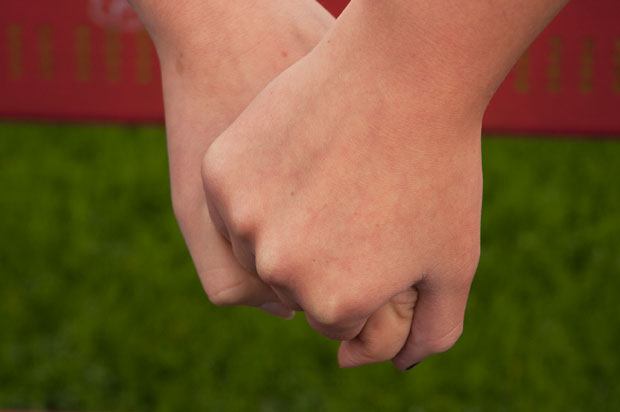Coping with their self-harm
Being there for someone who self-harms can be draining and hard work emotionally, especially when it's happening close to home. To get through this you need to look after yourself and realise your needs, too.

Supporting someone with self-harm can be hard for you too.
Living with their self-harm
Self-harm is more common than we think. Every person who self-harms has different reasons and life experiences and it’s not something that’s easy to make sense of. Health professionals train for years to understand it all, so don’t expect to get it straight away. Just remember not to focus on the self-harm, but instead on the person and what lies behind their distress.
What if they don’t think it’s a big deal?
If you think that it’s a bigger problem than the person self-harming is accepting it to be, gently challenge them and tell them why you think so. “Understand that for them it might not be a big deal,” says counsellor and psychotherapist, Dr Andrew Reeves. “It’s a big deal for us because we can often feel helpless and want them to stop, but for those who use self-harm as a way of coping, it might be something they’ve done for a long time and they might not be as phased by it as you are.”
Should I tell my parents if it’s my sister or brother?
This is tricky because you don’t want to break their trust. Telling your parents may also not be as helpful as you think because they’re so emotionally involved. Try talking to your brother or sister first before you talk to your parents – especially if your folks are in any way part of the problem, which could make things worse. Talk to them gently and try not to be aggressive in any way. Every family is different so you’ll have to trust your instincts and think about how your parents may help, or hinder, the situation. If you’re really concerned that they’re putting themselves at serious risk, get further advice from a health professional or support group. However hard it may be, especially in the heat of the moment, try not to judge your sibling and focus on why they are doing it in the first place.
What if it’s my parents who are self-harming?
Having a parent who is self-harming is more common than you may think, so you’re definitely not alone if this is something that is happening in your family. Supporting your mum and dad is not easy because in an ideal world they’re the ones supporting, and worrying about you. Speak to your doctor (GP), a counsellor or call a helpline for advice on how to encourage them to seek specialist help. It’s also important that you talk to someone about how your parents’ self-harming may be affecting you, to make sure you are getting the right support.
If you find the right time to talk to your parent, or if it’s easier writing them a note expressing your worries about their behaviour, try pointing them in the direction of their GP, Mind or SANE. If your mum or dad has a social worker or psychiatric nurse because of their mental health problems, it’s a good idea to talk to them about any concerns you have.
Sharing the burden
You’re not responsible for what your brother or sister, a friend, your partner, or parent does – there are many reasons why someone self-harms. It’s natural to feel angry, upset, scared and confused as to why they are self-harming, especially when it’s someone you care about. “Trying to support someone all by yourself can be detrimental to their and your own mental health and could negatively impact on your relationship,” says Karen Wright, at young people’s mental health service, 42nd Street. “Talking to a counsellor, specialist support group or helpline about how you feel will ease the pressure and strain.” If you’re caring for a family member who has mental health problems you might get some useful advice from a local young carers project.
I can handle it…
“Be aware of your own feelings and take care of yourself. This may mean that you need to ensure you’re getting support from someone else to support you in supporting them. Be open about the benefits of this and agree ground rules about what information you can share,” says Karen. Acting like a spy will not help them, or your relationship. Accept the fact you can’t always be there for them, if and when they feel the need to self-harm. “Know your own boundaries,” says Andrew. “Give information about support services or good quality websites. Tell them that you want to be there for them, but that specialist help in addition to what you have to offer might be the best way forward.”
There’s no quick fix
Recovering from mental health problems can be a slow, intense process. Be honest with someone who self-harms about the reality that you may not be able to help them with all the difficulties. Be kind to yourself and acknowledge the importance of your role.
Next Steps
- Under 19? You can get confidential help with self-harm from ChildLine – either over the phone or through an online chat.
- Anyone can contact the Samaritans on their 24-hour helpline to talk things through. 116 123
- SANE offers support and information to people affected by mental illness. Call their helpline on 0300 304 7000, open 4:30pm - 10:30pm every day.
- Chat about this subject on our Discussion Boards.
By Monica Perdoni
Updated on 23-Dec-2015
Sorry, comments closed
No featured article







